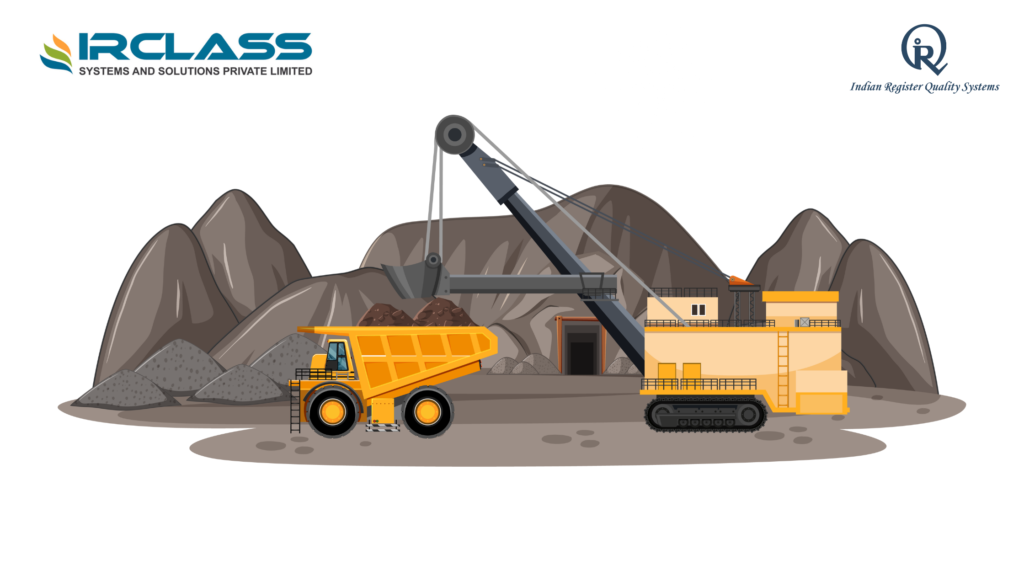Reasons why ISO Certification is so important in the mining industry
December 19, 2024 2025-01-16 14:34Reasons why ISO Certification is so important in the mining industry

Reasons why ISO Certification is so important in the mining industry
Mining is an economic necessity and also an environmental responsibility. As a sector, mining companies have a large direct impact on natural resources and ecosystems, and are under increasing pressure from governments, communities and stakeholders to be as responsible as possible in their use of natural resources and ecosystems. In this high stakes environment, following international standards such as ISO (International Organization for Standardization) is not only good for the organization, it may be required.
ISO certification for the mining organization is a blueprint to becoming more efficient, safer and smaller environmentally. Mining companies that do meet internationally acceptable standards demonstrate that they care about sustainability, the welfare of their workers and how they manage their resources.
This article explains the mining industry needs ISO certification, the standards that govern the industry, and its benefits to the organization and stakeholders.
Why is ISO Certification important in the Mining Sector?
It’s a complicated business with many environmental, operational and safety issues. Consequently, ISO certification is a key part of how these challenges can be addressed by structured, standardised approaches.
Why ISO Matters in Mining:
- Global Credibility: The mining companies are ISO certified according to international acceptable best practices.
- Regulatory Compliance: Compliance is easier and more efficient because there are so many ISO standards that correlate to government or industry specific regulations.
- Risk Mitigation: Mining companies use ISO Frameworks to identify, assess and reduce risk in areas such as safety, environmental impact and operational inefficiency.
- Sustainability: ISO certification enables mining companies to pursue economic goals but now along with environmental and social responsibility.
As the environment and society make as many headlines as they do, ISO certification is a route one industry can take to contribute to responsible and sustainable growth.

Key ISO Standards for Mining
There is a range of ISO standards relating to the areas of principal interest to the mining industry, such as environmental management, occupational health and safety and risk management. Below are some of the key standards and their significance:
ISO 14001: Environmental Management Systems
- Focus: It is an environmental responsibility management framework.
- Relevance to Mining: Mining operations have disrupted habitat, generated waste, polluted air and water. ISO 14001 gives the companies the flexibility to implement eco-friendly practices, use resources efficiently and also meet environmental laws.
ISO 45001: Occupational Health and Safety Management System
- Focus: It tends to reduce the risks that the workers may face and tries to establish a safe and healthy workplace.
- Relevance to Mining: Cave ins, accidents due to machinery and hazardous substances are all part of the work. ISO 45001 is tough when it comes to risk assessment, training programs and the proactive measures to be taken in order to avoid incidents on worker safety.
ISO 9001: Quality Management Systems
- Focus: It enhances operational efficiency and subsequently assures quality of processes and the outputs.
- Relevance to Mining: ISO 9001 provides mining companies some standardization of work flow, reduces waste and provides better quality products or services from the exploration stage through extraction to processing.
ISO 26000: Guidance on Social Responsibility
- Focus: It is a guide to ethical behaviour and social responsibility.
- Relevance to Mining: The mining companies are working in the faraway or developing regions where they can make enormous impact on the local communities. Ethical business practices and community involvement and respect for human rights are promoted by ISO 26000.
Taken together, these standards answer for the whole of the mining industry, addressing the many facets of mining: safe, efficient and sustainable.
ISO Certification has helped a great deal to the mining industry
However, certification for ISO of mining companies is more than just compliance. In operations value, reputation and stakeholder relationships, it provides myriads of benefits to the business.
1. More Operational Efficiency
They have streamlined processes, reduced operational redundancies and resources used in this process. This is important because it means that mining companies have less, in terms of production costs and productivity.
2. Performance in the Environment had improved.
With standards like ISO 14001, mining organizations can implement measures to reduce their environmental impact, such as:
- Waste management systems exist.
- To reduce energy consumption and emission.
- Water usage practices.
In addition, they comply with a regulatory requirement and assist a company in maintaining a good reputation as an environmentally responsible company.
3. Giving importance to Worker Safety
ISO 45001 can be used by mining companies to set up safe working practices that will decrease the number of accidents and illnesses at work. The employees are satisfied with the workplace, have good morale and they do not go on down time for anything.
4. Bolstered the Stakeholder Confidence
Mining companies are increasingly being asked to explain, and explain themselves to, their stakeholders: to investors, customers, and local communities. That means the operation of the organisation is reasonable and in line with international best practices.
5. Competitive Advantage
Obtaining ISO certification gives mining companies a competitive edge in a world market by demonstrating a real commitment in quality, safety and sustainability. This can lead to:
- More business opportunities.
- Makes it easier to access international markets.
- Environmental partnerships were strengthened.
6. Better Risk Management
Mining companies are able to begin discovering potential risks early on before it is a problem, and can act proactively to minimize those risks through ISO standards. It decreases the probability of environmental disasters, safety violations or operation failure.
Conclusion
Challenges unique to this industry have presented itself for the mining industry to be profitable, environmentally responsible and socially responsible. For mining companies, ISO certification provides a structured way out of these challenges by enabling them to operate sustainably, efficiently and ethically.
They can help mining companies to improve their operational process, prioritize worker safety and reduce its environmental footprint. While these certifications help you to stay compliant they also help you to build trust with your stakeholders, win in your market and lay out the roadmap to success in the long term.
The mining companies that want to be on the track of international standard and take it seriously are a big step for being certified to ISO. Mining organizations can have the certification process easy and reach their goals of efficiently and effectively mining organizations only through the partnership with an experienced certification body as IRQS (Indian Register Quality Systems).





